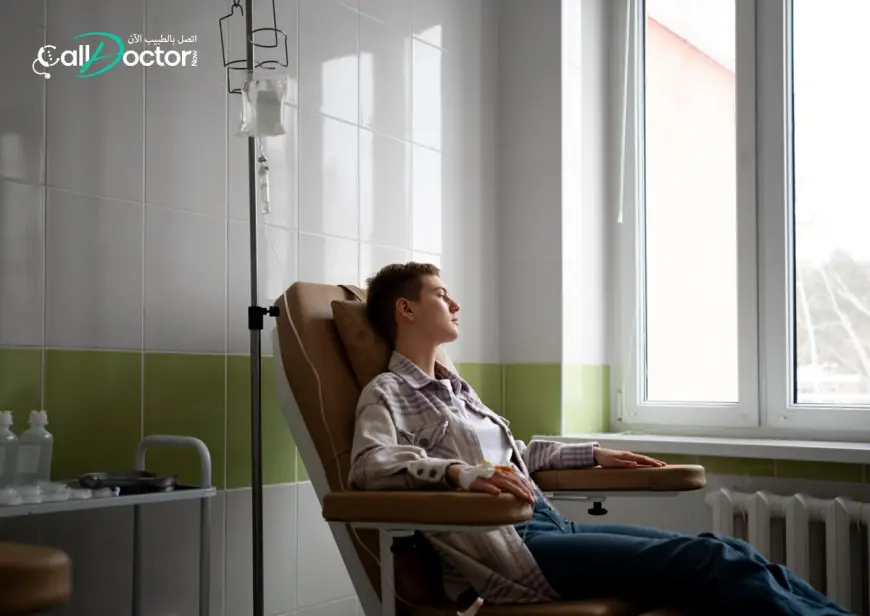Ultimate Guide to Staying Hydrated

Proper hydration is essential for maintaining energy, focus, and overall health. Yet, many people struggle to drink enough water daily, leading to fatigue, headaches, and even more serious health issues. In this guide, we’ll explore why hydration matters, signs of dehydration, and practical ways to stay hydrated—including innovative solutions like IV drip at home services for rapid rehydration.
Why Hydration Matters
Water makes up about 60% of the human body, playing a crucial role in:
-
Regulating body temperature
-
Supporting digestion and nutrient absorption
-
Lubricating joints
-
Flushing out toxins
-
Maintaining healthy skin
Even mild dehydration (as little as 1-2% fluid loss) can impair cognitive function, mood, and physical performance. That’s why staying hydrated should be a top priority.
Signs You’re Dehydrated
Many people don’t realize they’re dehydrated until symptoms become severe. Watch for these warning signs:
✅ Thirst (a late indicator—you’re already dehydrated by the time you feel thirsty)
✅ Dark yellow urine (ideally, it should be pale yellow)
✅ Dry mouth, lips, or skin
✅ Fatigue or dizziness
✅ Headaches
✅ Muscle cramps
✅ Brain fog or difficulty concentrating
If you experience these symptoms frequently, you may need to adjust your hydration habits.
How Much Water Should You Drink Daily?
The classic "8 glasses a day" rule is a good starting point, but individual needs vary based on:
-
Body weight (Aim for half your body weight in ounces—e.g., a 150 lb person should drink ~75 oz.)
-
Activity level (Sweating increases fluid loss)
-
Climate (Hot or dry weather requires more hydration)
-
Diet (High-sodium or high-protein diets may increase water needs)
Pregnant women, athletes, and those with certain medical conditions may need even more fluids.
Best Ways to Stay Hydrated
1. Start Your Day with Water
After hours without fluids, your body needs hydration first thing in the morning. Try drinking 16 oz of water right after waking up.
2. Eat Water-Rich Foods
Fruits and vegetables like cucumbers, watermelon, oranges, and celery contribute to hydration.
3. Set Reminders
Use phone alerts or apps like Waterllama or Hydro Coach to track intake.
4. Flavor Your Water
If plain water is boring, add lemon, mint, berries, or electrolyte powders for taste.
5. Monitor Urine Color
Pale yellow = well-hydrated. Dark yellow = drink more.
6. Hydrate Before, During, and After Exercise
Sip water throughout workouts and consider electrolyte drinks for intense sessions.
7. Limit Dehydrating Drinks
Alcohol, coffee, and sugary sodas can increase fluid loss. Balance them with extra water.
8. Try an IV Drip at Home for Fast Rehydration
For those who struggle with severe dehydration (due to illness, travel, or intense activity), mobile IV drip at home services deliver fluids, electrolytes, and vitamins directly into the bloodstream for rapid absorption. This is especially helpful for quick recovery after a stomach bug, a night of drinking, or extreme workouts.
Myths About Hydration
❌ "If you’re thirsty, you’re already dehydrated."
-
While thirst is a sign, it’s not always too late—just drink water as soon as you notice it.
❌ "You can’t drink too much water."
-
Overhydration (hyponatremia) is rare but dangerous—balance water with electrolytes.
❌ "Coffee dehydrates you."
-
While caffeine is a mild diuretic, moderate coffee intake still contributes to hydration.
Special Hydration Needs
For Athletes
-
Drink 16-24 oz of water 2 hours before exercise
-
Sip 7-10 oz every 10-20 minutes during activity
-
Replenish with electrolytes post-workout
For Travelers
-
Air travel dehydrates you—drink extra water before, during, and after flights
-
Avoid excessive alcohol and salty snacks
For Seniors
-
Aging reduces thirst signals—set a hydration schedule
-
Monitor for confusion or dizziness, which can signal dehydration
Final Thoughts
Staying hydrated doesn’t have to be complicated. By listening to your body, incorporating water-rich foods, and using smart strategies like reminders and electrolyte drinks, you can maintain optimal hydration levels. And for those times when quick recovery is essential—like after illness or extreme fatigue—consider convenient options like IV drip at home services to restore balance fast.
What's Your Reaction?
 Like
0
Like
0
 Dislike
0
Dislike
0
 Love
0
Love
0
 Funny
0
Funny
0
 Angry
0
Angry
0
 Sad
0
Sad
0
 Wow
0
Wow
0

















































